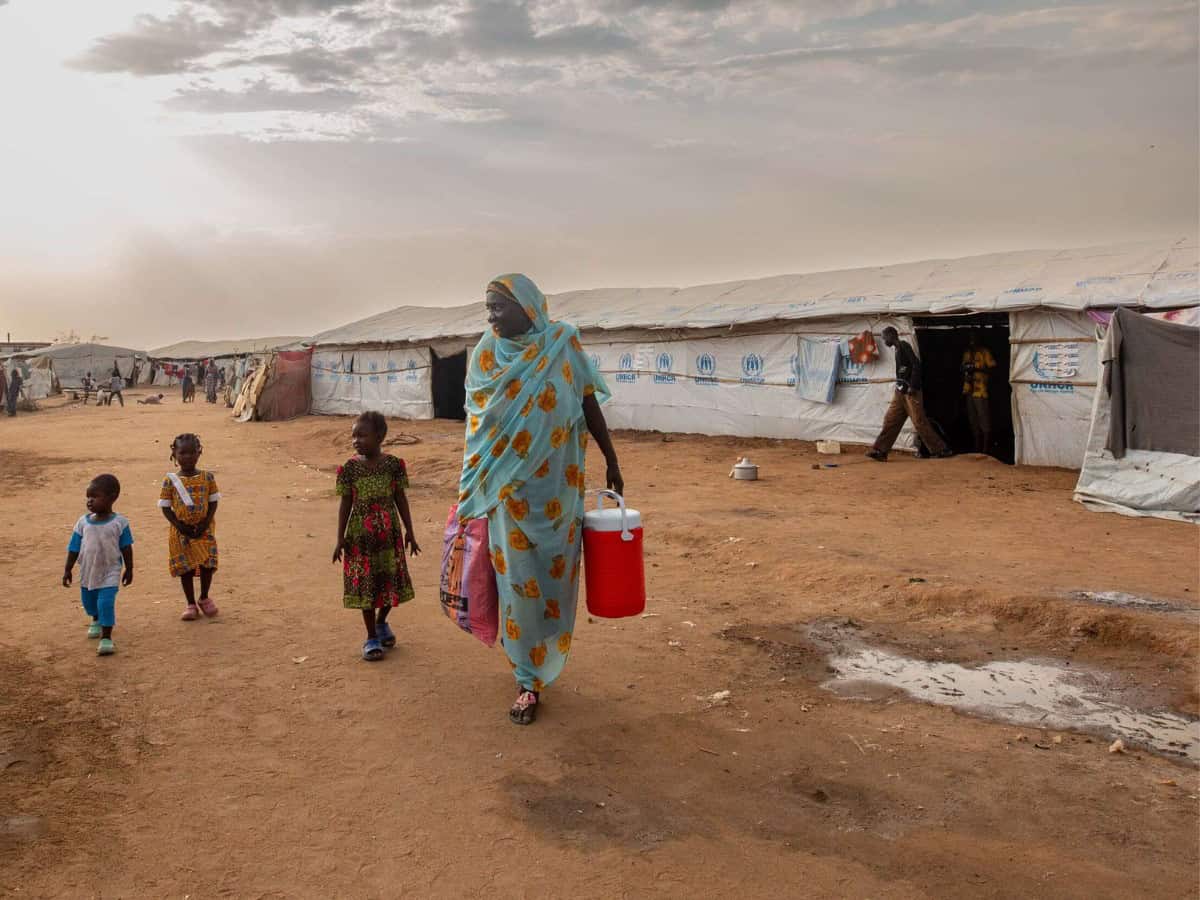
The United Arab Emirates is alarmed by the dire humanitarian crisis unfolding in Sudan, with severe food insecurity affecting over 25 million Sudanese citizens.
UAE’s ministry of foreign affairs in a press release expressed its deepest concern over the declared famine in parts of North Darfur, particularly in Zamzam camp, which shelters over half a million displaced people, the likelihood of a famine in the Abu Shouk and Al Salam camps, and the nine additional Sudanese states where people are living in catastrophic hunger conditions.
“We welcome the UN Security Council meeting which highlights the urgency of the situation of famine in Sudan. The international community must maintain its focus on Sudan,” it said.
The UAE affirms that the humanitarian crisis in Sudan demands an emergency response that helps secure a ceasefire and facilitates the swift delivery of humanitarian aid.
Trucks full of lifesaving aid are held on the border of Sudan while thousands starve across the country, including in Zamzam Camp and Northern Darfur.
“The Sudanese Armed Forces must lift its restrictions on humanitarian access and the Rapid Support Forces must ensure that organisations and humanitarian workers are allowed to operate safely, without fear of attack, to reach people in need,” the minister stated.
The Foreign Affairs minister further said that the UAE unequivocally condemns the use of starvation as a weapon of war, the denial of humanitarian access for civilians in need, and the indiscriminate attacks that make it impossible for people to receive assistance – all these are clear violations of international humanitarian law.
It stresses that the harrowing developments on the ground require the urgent scale-up of cross-border and cross-line humanitarian access to save millions of lives. The international community cannot allow the people of Sudan to be used as a political bargaining chip.
The UAE calls on the Security Council to utilize all the tools at its disposal to address the catastrophic situation in Sudan. This includes considering, if necessary, authorising UN humanitarian agencies to reach people in need across the country, through both cross-line and cross-border routes.
The Council’s decisive action can be critical in coordinating international efforts to bring in the aid necessary to stop this famine through neighbouring countries.
The UAE once again reiterates its call on the warring parties to agree to an immediate and permanent ceasefire and to prioritise human life over military objectives, allow for the unhindered, safe, rapid, and sustained passage of humanitarian assistance across the country, and engage in peace talks in good faith towards a civilian-led transition.
To that end, the UAE appreciates the efforts of the United States in organising the upcoming ceasefire talks in Geneva and those of the Kingdom of Saudi Arabia and Switzerland for co-hosting.
The UAE will continue to support all ongoing diplomatic efforts to reach a peaceful resolution to this conflict.
The UAE remains committed as a long-standing humanitarian partner in Sudan.
The UAE allocated USD 70 million to address the urgent humanitarian needs in Sudan, through UN agencies and humanitarian organisations, and USD 30 million to regional countries to support regional Sudanese refugees in neighbouring countries of Sudan.
Sudan civil war
Sudan has been witnessing deadly clashes between the SAF and the RSF since April 15, 2023, which have killed 15,550 people and displaced 8.8 million others so far, according to the latest estimates by the UN Office for the Coordination of Humanitarian Affairs.
Sudan, located at the crossroads of Sub-Saharan Africa and the Middle East, bordering the Red Sea is facing extreme levels of food insecurity with 18 million people—37% of the population—experiencing severe levels of acute food insecurity. Every day, millions of mothers and fathers are having to make impossible choices to feed their families, often going days without any food.
Children are at particular risk in Sudan. At least 10,400 schools in conflict-affected areas are shuttered, leaving an estimated 19 million children without education and at risk of abuse or exploitation, according to International Rescue Committee reports.

